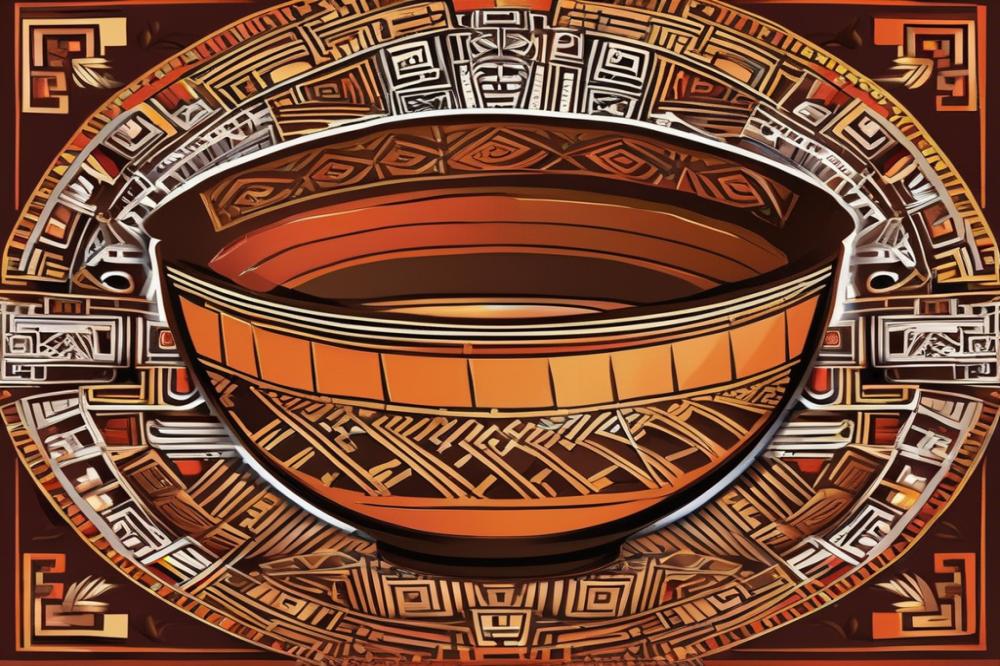Introduction
The history of chocolate runs deep, stretching back thousands of years. Originally, cocoa beans were cherished by ancient civilizations like the Maya and Aztecs. They used these beans for rituals and even as currency. Today, chocolate has evolved into a beloved treat enjoyed by many across the globe. However, this sweet delight comes at a cost, particularly for cocoa farmers who often face challenging conditions.
For many, Fair Trade Chocolate offers a way to enjoy this guilty pleasure while supporting those who produce it. This movement promotes trade justice, aiming to level the playing field for farmers. Certification marks help consumers identify products made under Ethical Practices. Awareness about where chocolate comes from is growing. People want to know if their choices make a difference in the lives of others.
The significance of ethical consumption cannot be overstated. Supporting sustainable practices helps to protect communities and their environments. The darker side of the chocolate industry hides issues like exploitation and poverty among cocoa producers. Without our collective action, the cycle of unfair labor and inequalities will continue. Advocating for economic empowerment through better trade policies can lead to a positive social impact on farming communities.
Many consumers are now looking for responsible sourcing when they shop. They understand that their buying decisions can either uplift or undermine workers in developing countries. This change in mindset is crucial, as it encourages a more sustainable chocolate market. As we delve deeper into Fair Trade Chocolate, let’s explore how this movement champions the rights of farmers and promotes a brighter future for all.
The Origins of Chocolate
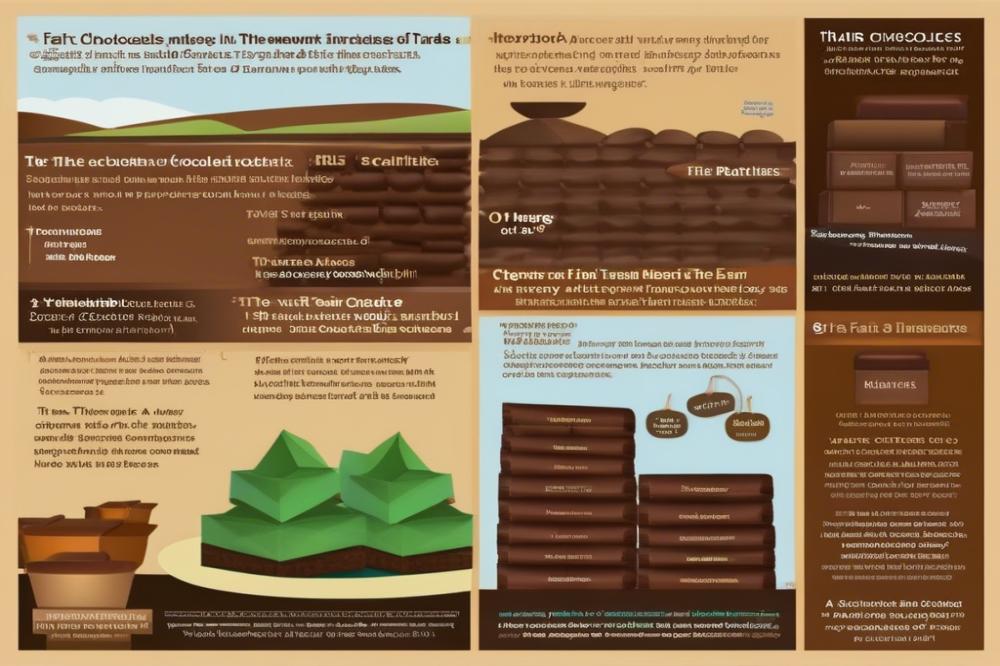
Chocolate’s journey started long ago, deep in the hearts of ancient civilizations. The Olmecs, one of the first cultures in Mesoamerica, are believed to have discovered the cocoa bean around 1500 B.C. They cherished it, using it for ceremonial drinks. This early appreciation laid the groundwork for how cocoa would be used in the future. Later, the Mayans and Aztecs took this legacy further. They created festive drinks from cocoa, often spiced with chili or vanilla. For them, chocolate was much more than a food item; it was a divine gift linked to their gods.
Cocoa farming slowly became significant in these cultures. It was not just about taste; it was about identity and tradition. Throughout history, these early peoples engaged in trade practices that shaped their societies. They exchanged cocoa beans for gold, textiles, and valuable resources. This trade created a complex network, linking different cultures through the love of chocolate. Certainly, the cocoa bean began to symbolize wealth and luxury. Even today, we can see remnants of these values in our chocolate consumption.
The cocoa industry has grown significantly since those early days. However, with growth came challenges. Many cocoa farmers struggle to receive fair compensation for their hard work. The market is often unkind. This imbalance has sparked a conversation around trade justice. As consumer awareness has increased, more people are seeking ethical consumption options. They want to support those who cultivate cocoa responsibly. A growing awareness of sustainability is helping shift perspectives toward cocoa farming.
The modern chocolate industry has evolved, yet many issues remain. Fair trade certification has emerged as a way to address these concerns. This approach requires companies to adhere to Ethical Practices throughout their supply chains. By ensuring that cocoa farmers are paid fairly, the movement fosters economic empowerment. Moreover, it promotes social impact in farming communities. Such shifts spotlight the importance of responsible sourcing and ethical practices in our chocolate.
The Emergence of the Fair Trade Movement
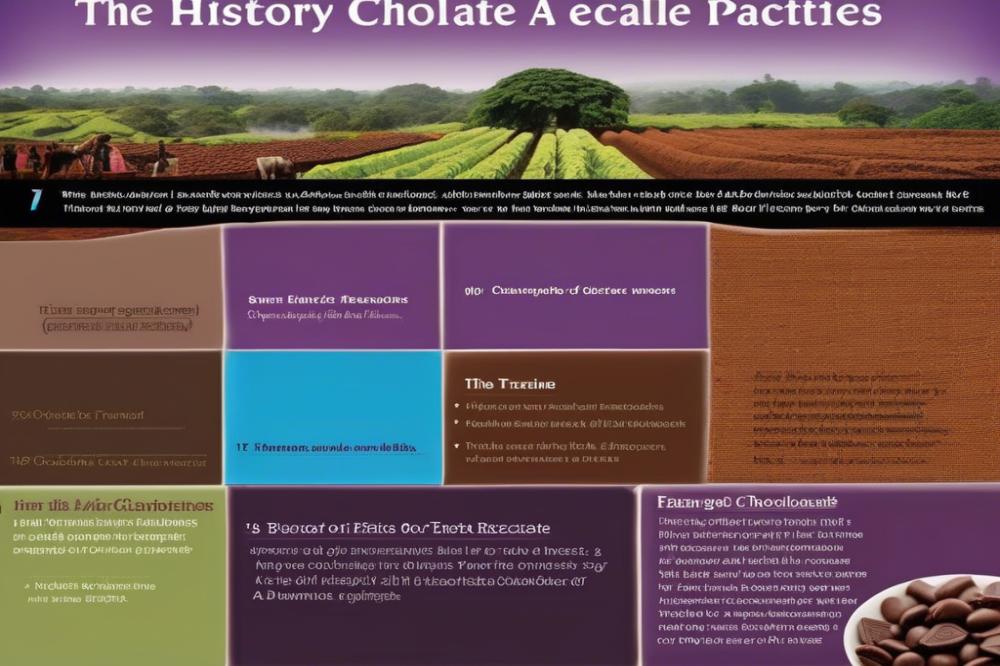
The Fair Trade movement began to take shape in the mid-20th century. Its roots lay in a desire to combat the deep inequalities in global trade. People wanted to see a shift toward fairer practices that offered better conditions for farmers. Trade justice became a rallying cry for advocates seeking to improve the lives of producers in developing countries.
Initially, this movement centered around coffee. Many social organizations started promoting coffee that met ethical standards. As consumer awareness grew, so did the demand for products that made a positive social impact. This increased attention opened the door to other commodities, paving the way for chocolate.
The cocoa farmers who produce chocolate often face immense challenges. Low prices, poor working conditions, and lack of support have plagued the industry for years. Fair Trade certification began to appear, promising a better deal for these producers. Companies that embraced this label showcased their commitment to responsible sourcing.
Chocolate lovers started to recognize the importance of ethical consumption. As they learned more about where their chocolate came from, it fueled interest in supporting sustainable practices. Awareness shifted toward the direct relationship between consumers and cocoa farmers. This connection empowered those in the chocolate industry and triggered a broader movement.
Economic empowerment became a key component. Fair Trade initiatives helped farmers gain a stronger voice in the market. By promoting sustainable methods, they also contributed to the health of their communities. Better harvesting techniques included environmentally-friendly practices that focused on sustainability.
Now, consumers have more choices than ever before. They can select chocolate that reflects their values. The Fair Trade movement continues to push boundaries, evolving as it addresses new issues. Through this growing awareness, the hope is to create a fairer and more equitable world for all involved in the chocolate supply chain.
Fair Trade Certification and Its Impact
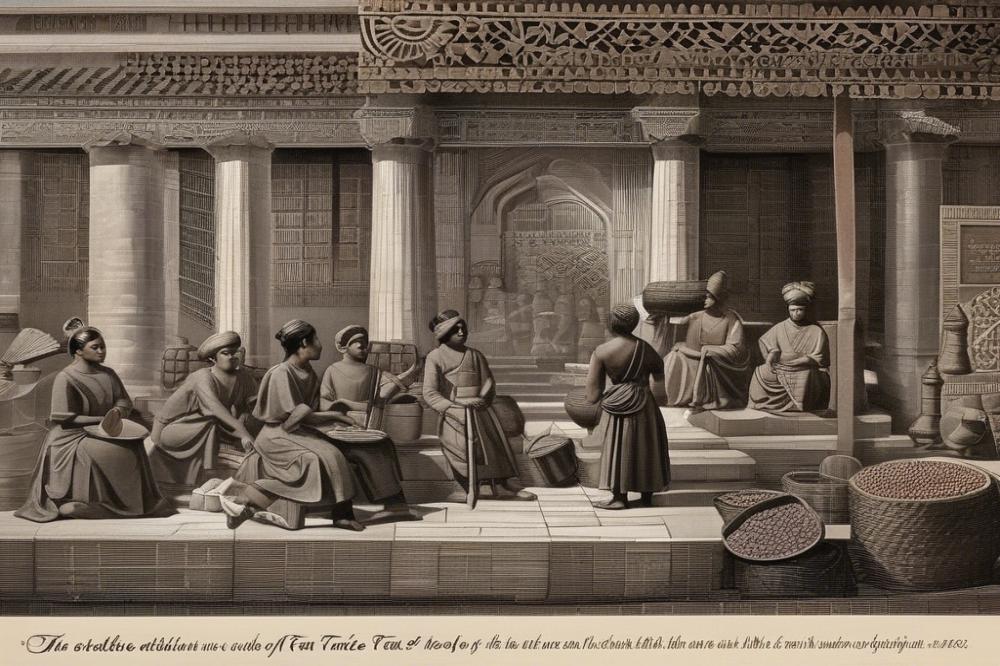
Fair Trade certification serves as a hallmark of ethical practices in the chocolate industry. This process involves several steps to ensure that farmers receive fair treatment. It starts with farmers meeting specific standards that promote sustainability and social responsibility. These standards include fair wages, safe working conditions, and respect for the environment.
Certifying bodies like Fair Trade International play a crucial role in this movement. They evaluate farms and cooperatives against a strict set of criteria. Only those that comply can display the Fair Trade label. This label is more than a badge; it’s a symbol for consumers and a commitment to trade justice.
Cocoa farmers often face challenges like low wages and unstable markets. Fair Trade seeks to turn this around. By guaranteeing a minimum price, farmers can gain economic empowerment. They receive funds that support not only their livelihoods but also community projects like schools and healthcare.
Responsible sourcing is at the core of the Fair Trade model. When consumers choose products with the Fair Trade label, they contribute to a larger cause. Awareness has risen, leading more shoppers to consider the story behind their chocolate. This kind of ethical consumption can lead to a social impact that resonates beyond individual purchases.
The difference made by Fair Trade practices is profound. Many farmers report improvements in their living standards. Access to education and healthcare becomes possible, creating a ripple effect in their communities. As awareness continues to grow, more will understand the importance of supporting ethical practices in the cocoa industry.
Consumer Awareness and Ethical Consumption
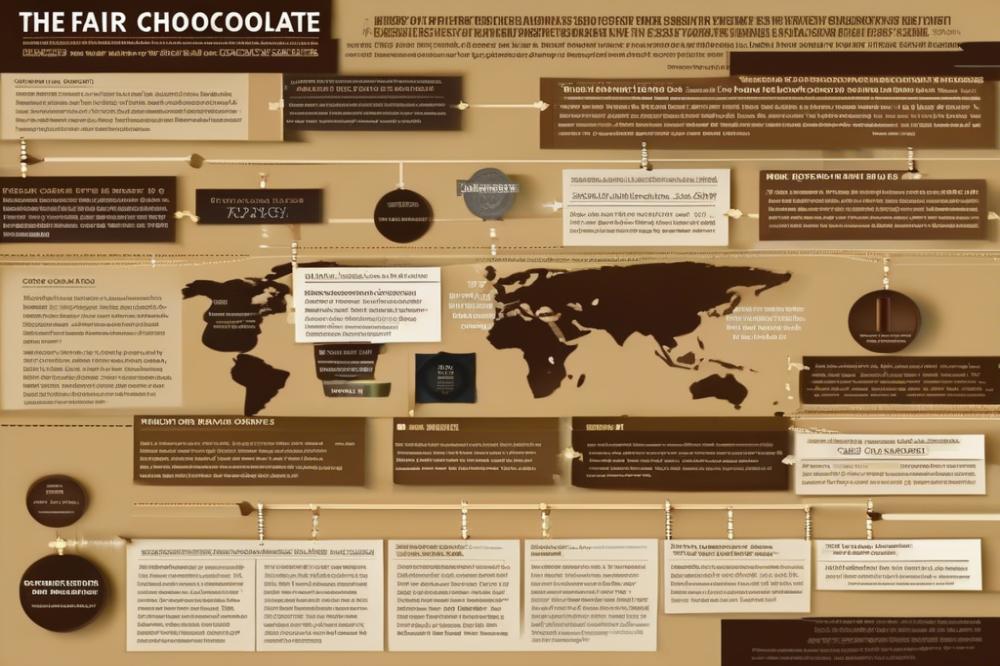
Awareness among consumers has surged in recent years. Many people are becoming more conscious of where their chocolate comes from. This shift means that the demand for ethical practices in the chocolate industry is rising significantly.
Both brands and shoppers are now focusing on sustainability and trade justice. It’s no longer just about having a tasty treat. Consumers are actively seeking out products that support cocoa farmers and their communities. They want to know that their purchase makes a positive difference.
Social media plays a vital role in this change. Platforms like Instagram and Twitter spread information quickly. Campaigns advocating for responsible sourcing reach wide audiences, making a memorable impact. These efforts educate consumers about the importance of certification programs and fair wages for farmers.
Trends show that shoppers are more likely to choose brands that commit to ethical consumption. This demand pressures companies to adopt better practices. More brands are starting to highlight their social impact and transparency in sourcing. They recognize that consumers want to support those who promote economic empowerment for farmers.
In essence, awareness is the catalyst for change. As people learn about the struggles faced by cocoa farmers, they feel compelled to act. This shift in mindset is transforming the chocolate industry, making it more accountable to those who are at the heart of chocolate production.
Challenges in the Fair Trade Chocolate Industry
The Fair Trade chocolate movement faces several challenges. First, scalability can be a significant hurdle. Many small-scale farmers struggle to meet increased demand while maintaining ethical practices. Competing with large corporations adds further complexity. Conventional chocolate companies often have deep pockets and established supply chains.
Consumer misconceptions also impact sales. People might think Fair Trade products cost too much or assume they are not of high quality. Increased consumer awareness is crucial. Educating buyers about the social impact and value of ethical consumption can help. Many are willing to pay more for responsible sourcing but need to understand the reasons behind it.
Global market fluctuations pose risks to cocoa farmers. Prices can drop unexpectedly, putting financial strain on communities. This instability challenges the principles of trade justice that Fair Trade champions. Farmers rely on consistent pricing to support their families and invest in sustainable practices.
Certification is another key issue. Maintaining the standards for Fair Trade can be stringent. Not all chocolate brands can meet these requirements. This creates a divide within the chocolate industry, as some brands may falsely claim ethical practices. Consumers should be aware of genuine Fair Trade labels to avoid being misled.
Lastly, economic empowerment varies greatly across regions. Some farmers gain significant benefits from Fair Trade initiatives, while others still struggle. Collective action and support are necessary to help all stakeholders thrive. The challenges are real, and overcoming them requires cooperation among producers, consumers, and companies.
Success Stories and Social Impact
Brands that prioritize ethical consumption have made a significant mark in the chocolate industry. They create delicious products while supporting cocoa farmers and their communities. One standout is Divine Chocolate. This brand has gained a reputation for its commitment to fair trade principles. By sourcing cocoa directly from farmer cooperatives, they empower the very people who grow the cocoa beans. Each purchase supports economic empowerment and offers farmers an equitable share of profits.
Another shining example is Tony’s Chocolonely. This company aims to make chocolate 100% slave-free while raising consumer awareness about trade justice. Their unique approach includes direct trade relationships with cocoa farmers in West Africa. Not only does this method boost income, but it also leads to better working conditions. The impact on health and education in these communities is profound, as the funds often go toward local schools and health clinics. A commitment to sustainability is at the heart of their operations.
The social impact extends beyond these brands alone. Many cooperative societies are involved in fair trade certification. These organizations play a crucial role in ensuring that farmers receive fair wages. This structure leads to better living standards and overall quality of life. Programs funded by fair trade premiums often focus on community projects such as sanitation and water supply improvements.
When consumers choose ethical chocolate brands, they help create a ripple effect. Funds generated through fair practices frequently assist in building schools and healthcare facilities. By investing in education, these brands foster future generations of cocoa farmers who are more knowledgeable about sustainability and responsible sourcing. The collective effort of these companies illustrates how the chocolate industry can operate responsibly while still being profitable.
Overall, the success stories of these companies illustrate a growing movement. They show how ethical practices can lead to real change. By promoting social responsibility, these brands help cocoa farming communities thrive. They pave the way for a brighter future, one bar of chocolate at a time.
The Future of Fair Trade Chocolate
The Fair Trade Chocolate movement is evolving. Predictions suggest that consumer awareness will continue to rise. More people want to know where their chocolate comes from. They expect transparency from brands. This shift places pressure on the chocolate industry to adapt.
Innovations in certification will also play a significant role. New standards could emerge to address sustainability. Certifications may include stricter guidelines around social impact. This would benefit cocoa farmers by ensuring they receive fair wages. Economic empowerment for these farmers is crucial for the movement’s future.
Responsible sourcing is becoming a key focus for many companies. Brands that prioritize ethical consumption will likely attract more customers. As a result, businesses may invest more in sustainable practices. The upcoming decade may see a surge in eco-friendly chocolate products. Healthy alternatives made from ethically sourced ingredients can boost sales.
Technology will enhance transparency in the supply chain. Blockchain, for example, can track cocoa from farm to factory. This level of detail builds trust among consumers. Buyers may prefer chocolate companies that offer insight into their sourcing methods. Transparency could become a unique selling point.
As the movement grows, collaboration between stakeholders will be essential. Partnerships among NGOs, farmers, and businesses can help drive progress. Trade justice will remain at the forefront, making sure that all voices are heard. A united front may push for more significant reforms within the chocolate industry.
Consumer trends indicate a shift towards ethical and conscious purchasing. More individuals are willing to pay extra for products that align with their values. This demand provides an incentive for brands to adopt fair policies. They must respond with products that reflect these standards. The future of the chocolate market could be brighter with these changes.
Final Thoughts on Ethical Practices in Chocolate
The journey of Fair Trade chocolate highlights the need for ethical practices in the industry. From its inception, this movement has aimed to uplift communities by prioritizing the rights and well-being of cocoa farmers. By offering fair wages and improving working conditions, the movement helps empower those who cultivate one of the world’s favorite treats.
Purchasing products that carry Fair Trade certification supports not just farmers, but reinforces the concept of sustainability. When consumers choose these products, they contribute to a system that values fairness, respect, and environmental stewardship. Each bar of chocolate purchased is a step toward a more just world.
Every individual can make a difference. Embracing the essence of fair trade could mean enjoying chocolate that aligns with your values. Choosing to buy ethical products fosters a market that demands responsible sourcing and conscientious business practices. Imagine a world where all chocolate is made with integrity and respect!
Your choices matter. Let’s move towards a future where ethical practices are the norm, not the exception. Remember, every small action counts. Next time you’re at the store, keep an eye out for Fair Trade labels. Together, we can make a significant impact.



